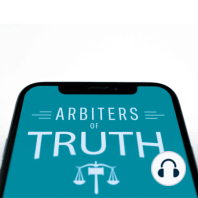56 min listen

Nate Persily Asks Whether Democracy Can Survive the Internet
Nate Persily Asks Whether Democracy Can Survive the Internet
ratings:
Length:
53 minutes
Released:
Feb 3, 2022
Format:
Podcast episode
Description
On this episode of the Arbiters of Truth series on disinformation, Evelyn Douek and Quinta Jurecic spoke with Nate Persily, the James B. McClatchy Professor of Law at Stanford Law School. Persily is also a member of the Kofi Annan Commission on Democracy and Elections in the Digital Age, which recently released a report on election integrity and the internet for which Nate provided a framing paper. Alongside his work on internet governance, Nate is also an expert on election law and administration. They spoke about the commission report and the challenges the internet may pose for democracy, to what extent the pandemic has flipped that on its head, and, of course, the 2020 presidential election. Our GDPR privacy policy was updated on August 8, 2022. Visit acast.com/privacy for more information.
Released:
Feb 3, 2022
Format:
Podcast episode
Titles in the series (100)
Whitney Phillips and Ryan Milner on Our Polluted Information Environment by Arbiters of Truth